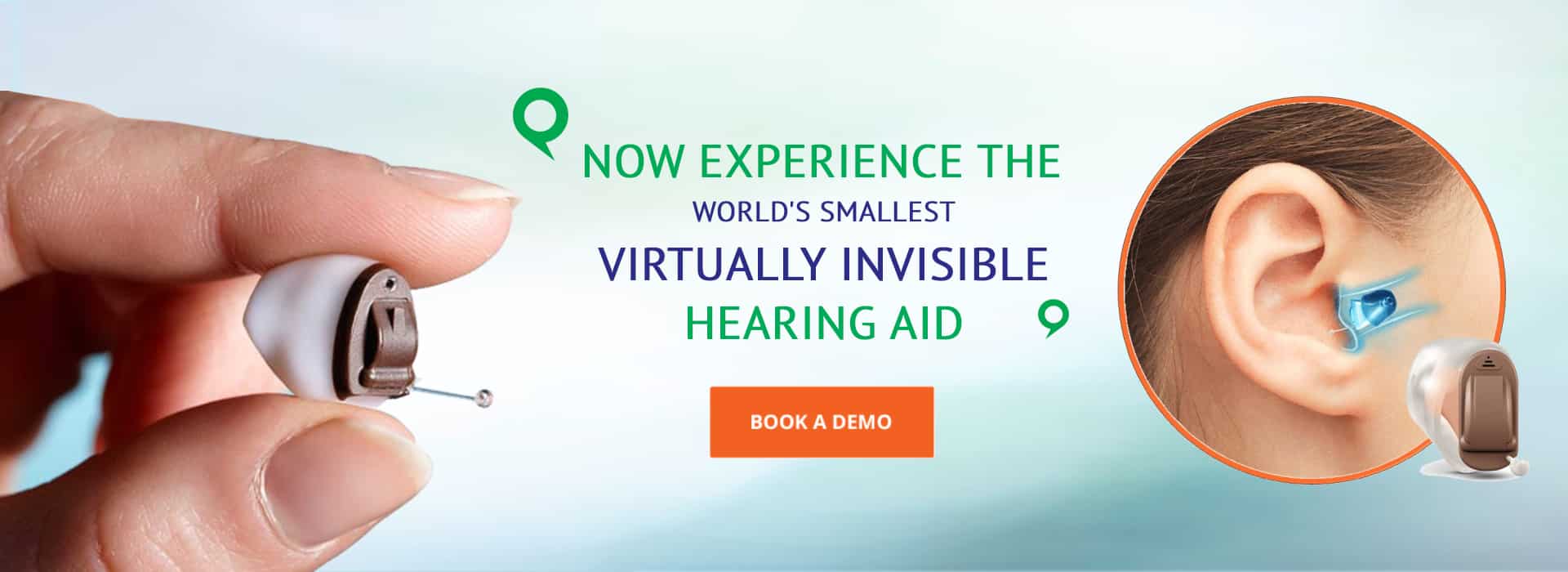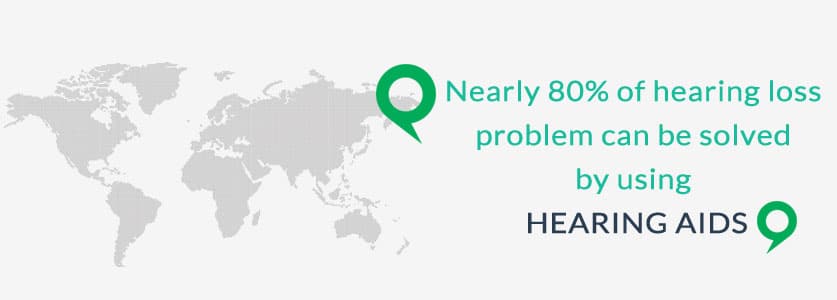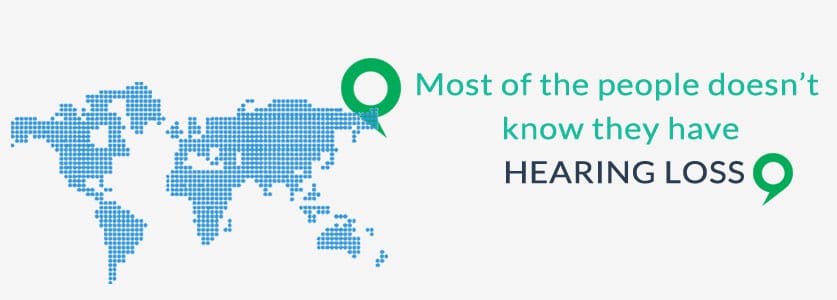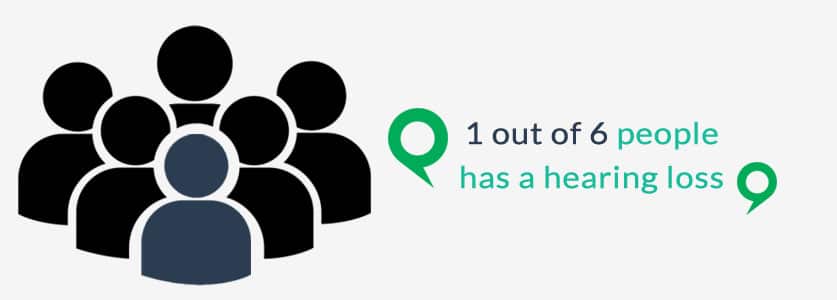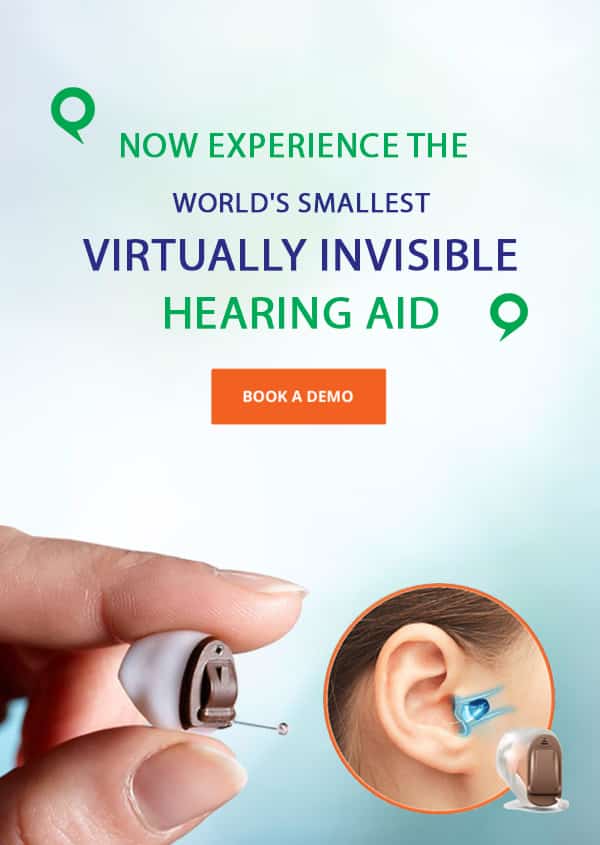
Hearing Aid Information
Advanced hearing aids are state-of-the-art devices that sharpen quality of life and auditory perception. They customise sound amplification using intricate circuitry, adjusted by audiologists for your lifestyle.
Types Of Hearing Aids
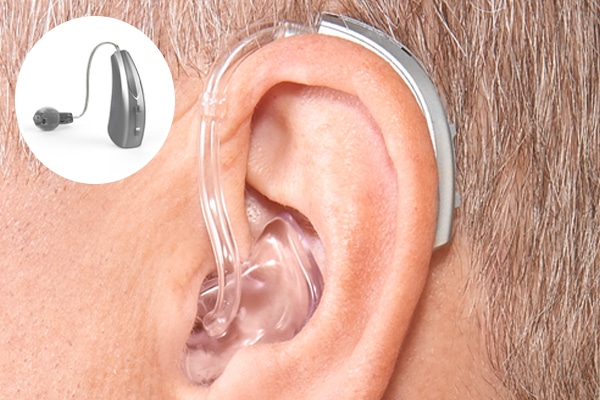
Behind-The-Ear (BTE)
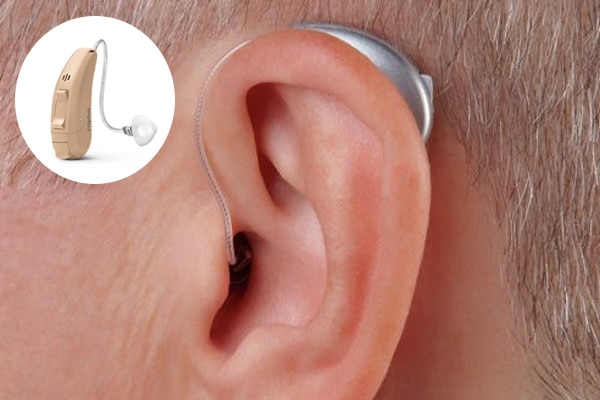
Receiver-In-Canal (RIC)
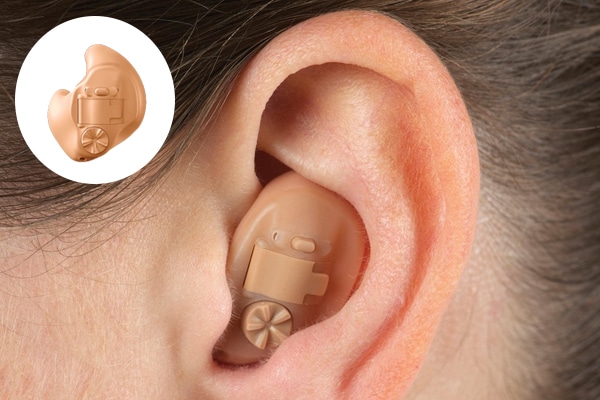
In-The-Ear (ITE)

In-The-Canal (ITC)
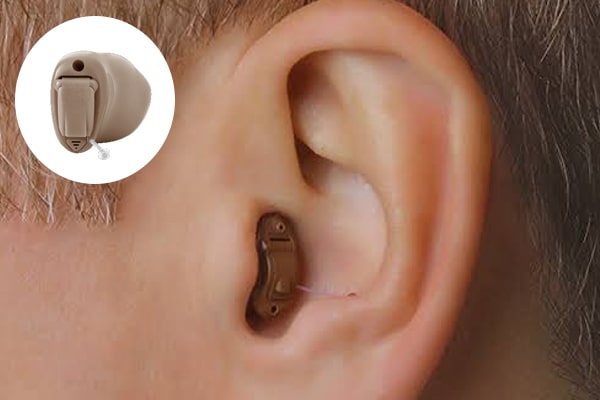
Completely-In-Canal (CIC)
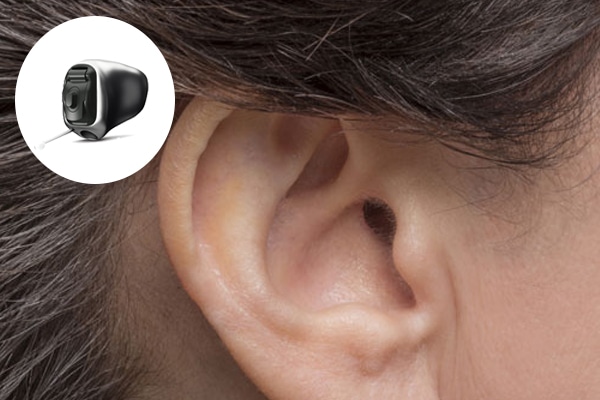
Invisible-Hearing-Aids (IIC)
Behind-The-Ear (BTE)
The behind-the-ear (BTE) hearing aid clips over the top of your ear and rests behind the ear that has directional microphones. The tube connects the hearing aid to a custom earpiece called an earmold that suits your ear canal. This type is suitable for people of all ages and for people with any type of hearing loss.
Receiver-In-Canal (RIC)
Receiver-in-canal (RIC) hearing aids also refer as receiver-in-the-ear (RITE) or canal receiver technology (CRT) sit in the ear canal and are smaller than standard BTE models. It is easy to handle and holds immense features. A tiny wire connects the piece behind the ear to the speaker or receiver. They are worn behind your ears with utmost comfort and convenience.
In-The-Ear (ITE)
The In-the-Ear (ITE) hearing aid is a custom aid made in two styles: One that fills the bowl-shaped area of your outer ear (full shell) and one that fills only the lower part (half shell). Both clips aid people with mild to severe hearing loss and are available with directional microphones (two microphones for better hearing noise). It has volume control features.
In-The-Canal (ITC)
The In-the-canal (ITC) hearing aid is custom moulded that fits partly in the ear canal. This can improve mild to moderate hearing loss in adults. It would appear less visible in the ear and renders comfortable support.
Completely-In-Canal (CIC)
The completely-in-Canal hearing aid is modelled to fit inside your ear canal. It improves mild to moderate hearing loss in adults. It is the less visible type with a small appearance.
Invisible Hearing Aids (IIC)
The Invisible Hearing Aids rest in the second bend of the ear canal where no one notices them. It is a custom fit modelled to perfectly fit in your ears. It rests deep in the ear and is the smallest most discreet hearing aid of assistance.
How To Know Hearing Aids Will Work Me
| FEATURES OF HEARING AID | ||
|---|---|---|
| Personalized hearing aid selection requires guidance from a healthcare provider due to wide brand, style, and technology variations. | ||
| BASIC | MID-RANGE | PREMIUM |
| ₹ 20K – 40K | ₹ 50K – 150K | ₹ 150K – 250K |
| Easy-to-use buttons or dials Discreet Design |
Easy to adjust For mild to severe hearing loss |
Cosmetic and Listening advantages Used for adults |
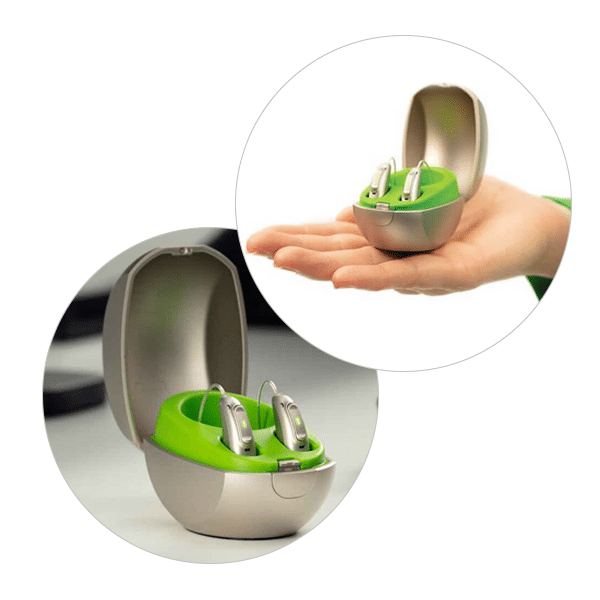
How To Know Hearing Aids Will Work Me
![]() Nearly all modern hearing aids are digital and require professional fitting and programming by a hearing care practitioner.
Nearly all modern hearing aids are digital and require professional fitting and programming by a hearing care practitioner.
![]() These hearing aids offer for greater flexibility than previous hearing aid generations because the programmer can set them to amplify precisely the frequencies needed for each individual.
These hearing aids offer for greater flexibility than previous hearing aid generations because the programmer can set them to amplify precisely the frequencies needed for each individual.
![]() As the level of technology increases from basic to advanced, hearing aid features become more automatic and more dynamic to adjust quickly to any listening situation. Some hearing aids today even have user-centered features like voice prompts for low battery and program changes.
As the level of technology increases from basic to advanced, hearing aid features become more automatic and more dynamic to adjust quickly to any listening situation. Some hearing aids today even have user-centered features like voice prompts for low battery and program changes.
FAQ - Hearing Aid
Is it OK for me to sleep in my hearing aids?
When going to bed for the night, you should remove your hearing aids and open the battery door to help conserve battery life.
How do I turn my hearing aid on and off?
To turn the hearing aid off, open the battery door. It is not necessary, but not harmful, to remove the battery completely from the hearing aid.
Which professions carry a risk of hearing loss?
Some of the occupations at risk of causing hearing loss include: tradesmen, factory workers, firefighters, police officers, farmers, construction workers, military personnel, heavy industry workers, musicians, and other entertainment professionals.
How often should I clean my hearing aids?
Cleaning your hearing aids more frequently will help keep them in the best condition possible. Cleaning them once every morning before you put them on is generally a good practice.
Will hearing aids restore my hearing?
No hearing aid can restore your hearing to normal. However, Siemens hearing aids will let you to hear soft sounds that you couldn’t hear before. Your hearing aids will also help you better understand speech.


